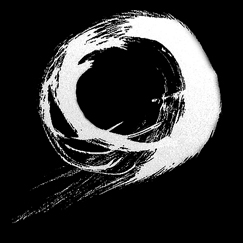
BuddhaWeg-Sangha
Mitglied der Association Bouddhiste Zen d'Europe
Mitglied der Deutschen Buddhistischen Union
|
Intimacy
is Like Fish and Water
|
|
In zen and in many buddhist groups we relate
to a boss whose name was Shakyamuni Buddha. Some groups go back
to different buddhas, like Vairocana Buddha, but zen and many
groups go back to the founder Shakyamuni Buddha, from about 500
BC. Although he didn’t know that there was a B.C. at the
time. And when he had his enlightenment experience, in our tradition
at least we say that. he said “How wonderful! How wonderful!
Everyone – everything is enlightened!” Except the
problem is that most of us are attached to our notions and ideas
that we’re not enlightened. Or we’re attached to some
kind of notions and ideas. And so we can’t see that state
of enlightenment. He said “Everything as it is is enlightened,
so what we can’t see or we can’t accept is that everything
as it is, is enlightened. So it’s a bit like the fish in
the water. Are there no problems in the animal realm then? They don’t call them problems I guess. Yeah, that’s the point. If you take away the words, are the problems problems or are they just things that are happening? Who’s defining them as problems? If we didn’t have words, wouldn’t there just be something else? Yeah, so what you’re saying is if we didn’t
have the words – if there weren’t the semantics, we
would create some other way of creating our problems maybe. In
and of itself, the word “problem” is a problem. Problems
are extremely subjective. Extremely subjective – you go
outside, you know, this couple with their kids they go outside
– they’re going to a picnic. They’ve got all
their stuff together and they’re going out to go have a
picnic and it starts to thunderstorm. It starts raining like crazy.
They have a problem. The farmer on the other hand is looking up
at the rain and saying “Wow! Great!” He doesn’t
have a problem. So the rain in and of itself is not such a problem.
It’s the thoughts we have about it. Or the plans we had
-the expectations we had, and then something happens to screw
up our expectations a little. But the rain itself is like the
intimacy of fish and water. That is, sometimes it’s snow,
sometimes it’s sun, sometimes it’s rain. It’s
everything that’s happening. Sometimes different cells do
funny things in our system and they become for us problems, or
for our loved ones they become problems. The cells don’t
know it, they’re just doing their thing it seems, and all
together it’s the fish in water, I mean you go in that ocean,
and there’s fish swallowing fish and whales swallowing fish
and people harpooning whales and there’s all kinds of stuff
going on. |